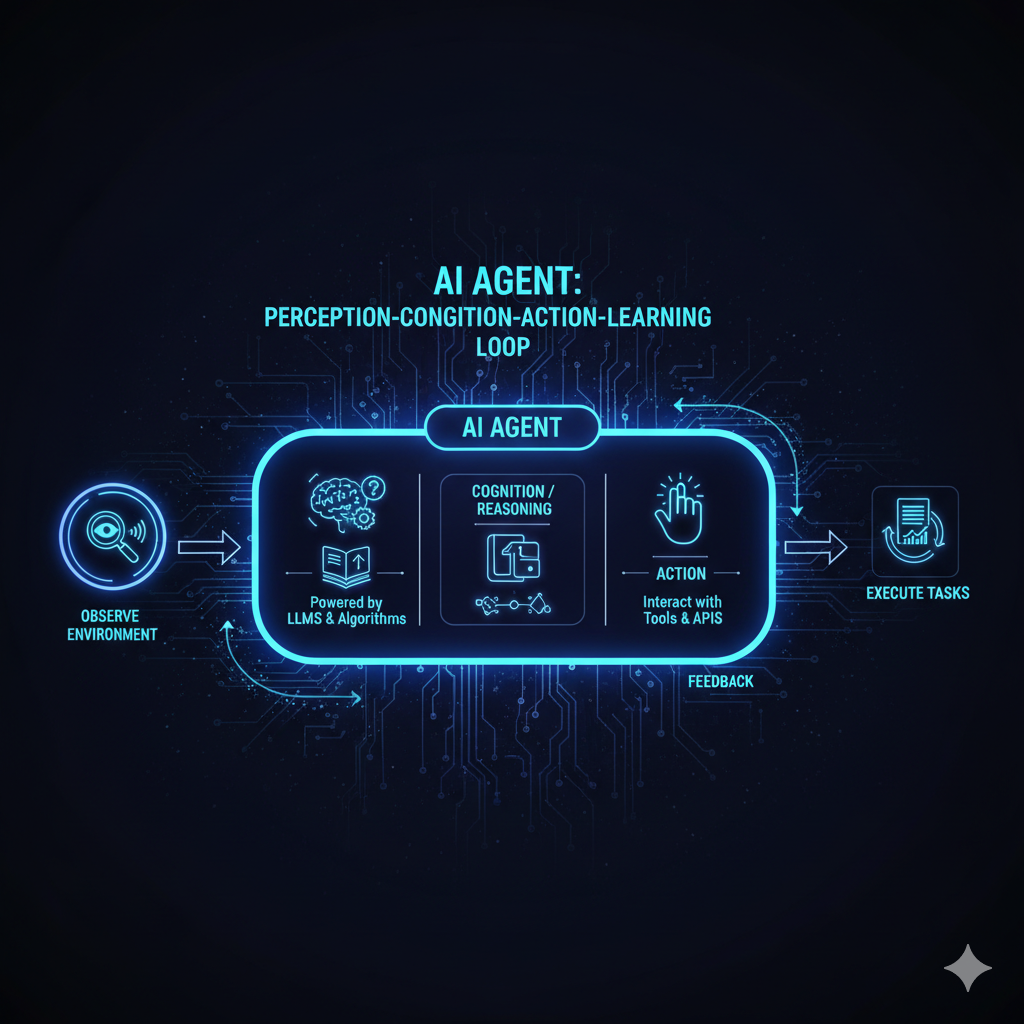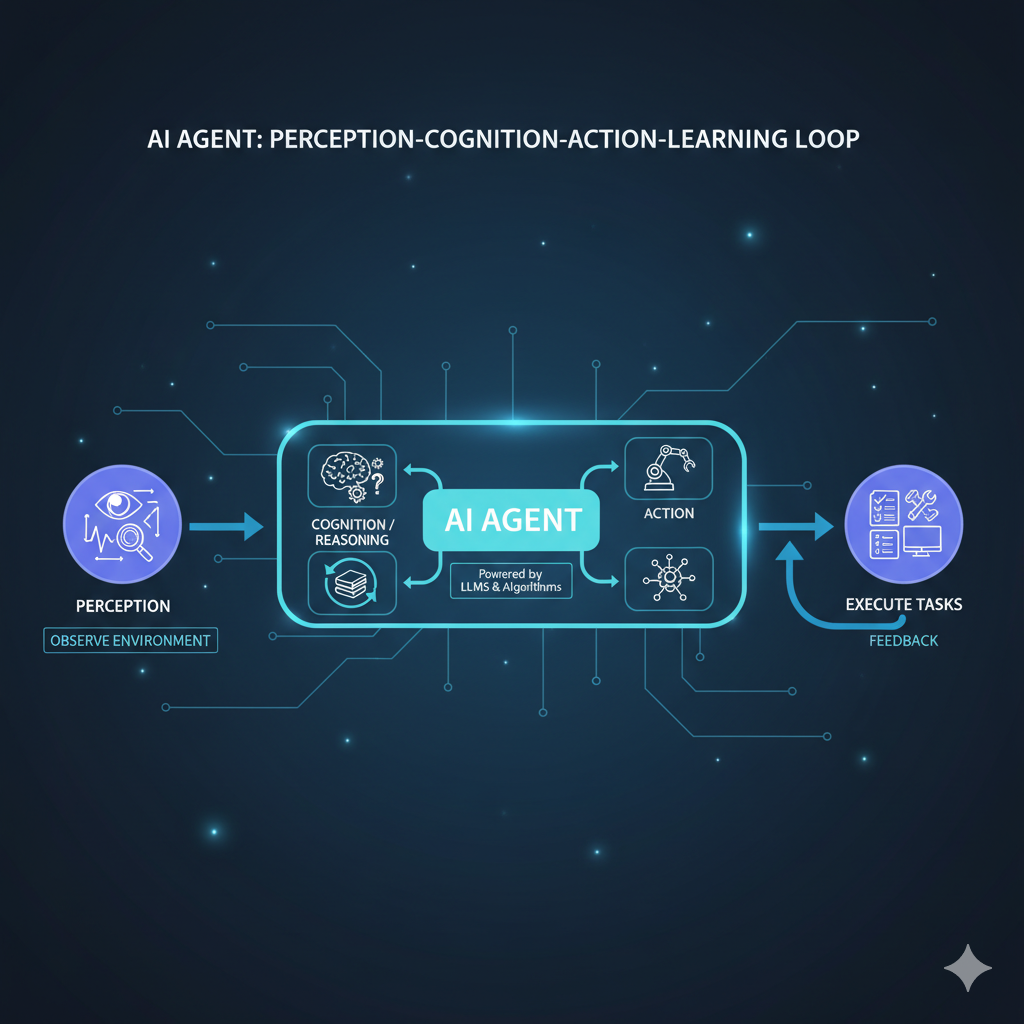Physical Address
304 North Cardinal St.
Dorchester Center, MA 02124
Physical Address
304 North Cardinal St.
Dorchester Center, MA 02124

Let’s be real you’re already using AI every day. It’s in your Netflix queue, your Spotify playlist, and the autocorrect that saves you from embarrassing typos. That’s AI reacting to your commands.
But what if AI could do things for you? Not just respond, but understand your goals, make a plan, and execute it all on its own?
That’s not science fiction anymore. That’s the world of AI Agents, and it’s the next massive leap in technology. If today’s AI is a super-smart calculator, an AI agent is your own personal chief of staff, ready to tackle complex tasks while you focus on the big picture.
Ready to understand the biggest tech shift of 2025? Let’s dive in.
Think of an AI Agent as an autonomous, goal-oriented program. You don’t just give it a command; you give it a mission.
The AI agent then takes that goal, breaks it down into smaller steps, uses various tools (like search engines, booking sites, and maps), and executes the plan from start to finish. It’s a self-sufficient worker in a digital world.
First, an agent needs to observe its environment. This “environment” can be anything: the internet, a company’s database, your personal calendar, or sensor data from a smart car. It constantly gathers information to understand the current situation.
This is where the real intelligence happens. Using advanced models (like the ones behind ChatGPT), the agent processes the information it has perceived. It thinks about its goal, analyzes the data, considers different options, and formulates a strategic plan.
Once it has a plan, the agent acts. This isn’t just generating text. It can be:
The best agents learn from their results. Did an action bring it closer to its goal? Was there a mistake? It takes that feedback, refines its approach, and gets smarter over time. This is what makes autonomous agents so powerful—they continuously improve.

This isn’t just another tech trend; it’s a fundamental shift in how we’ll interact with technology.
Here’s why they matter:
Stat Spotlight: According to Gartner, over 50% of enterprises will be using AI agents in their business operations by 2027. This isn’t a distant future; it’s happening now.
Q1: How are AI agents different from chatbots like ChatGPT?
A chatbot is primarily conversational; it responds to your prompts. An AI agent is operational; it takes your goal, makes a plan, and uses tools to execute that plan in the digital world. It’s the difference between an advisor and a doer.
Q2: Is this going to take my job?
Not necessarily. The goal of AI agents is to augment human capability, not replace it. They will handle the repetitive, complex digital tasks, allowing humans to move into more strategic and creative roles. Think of it as getting a powerful assistant.
Q3: Are AI agents safe to use?
Safety is a top priority for developers. Most agent systems are being built with “sandboxes” (controlled environments) and human-in-the-loop approvals for critical tasks to ensure they operate safely and as intended.
AI agents are quickly moving from research labs to our daily lives. They promise a future where technology doesn’t just respond to us but actively works for us, anticipating our needs and executing our goals.
The revolution isn’t coming; it’s here. The best thing you can do is stay curious, start experimenting with new AI tools, and think about how you can use this technology to your advantage.
What complex task would you delegate to your personal AI agent first? Start exploring the possibilities today and get ready to level up your productivity like never before!